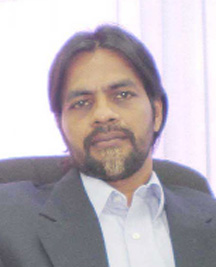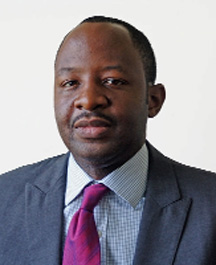Earlier this week a source informed Stabroek Business of the completion of the draft Telecommunications Bill 2010 adding that the two principal players in the local telecommunications sector had been sent copies of the document by the Office of the President. This newspaper understands that they have been given 16 days within which to study the document and make their comments.

The advent of the draft Telecom-munications Bill 2010 opens another phase in a protracted public discourse over bringing an end to the GT&T’s exclusive licence to provide data and voice traffic services. Debate on the issue of what is commonly described as ‘the GT&T monopoly’ has been raging for more than a year against the backdrop of pledges from President Bharrat Jagdeo to bring an end to GT&T’s exclusive licence and statements from GT&T and Atlantic Tele Network ( ATN) that they are willing to negotiate a termination of the exclusivity agreement.
GT&T CEO Yog Mahadeo told Stabroek Business in an interview on Tuesday that both the local telecommunications service provider and its parent company ATN were keen to see the process go forward. “We do not simply want to endorse liberalisation, we want to champion it,” Mahadeo said.
Digicel CEO Gregory Deane, in a brief telephone comment, acknowledged that his company had received a copy of the document. Asked whether he envisaged the completion of the draft bill represented a step closer to liberalisation Deane responded, “we hope so. We believe that it should lead to liberalisation.”
The draft Telecommunications Amendment Bill, which has been anticipated for several months, addresses issues that go beyond the termination of the existing GT&T voice and data services exclusivity. Other issues covered by the draft bill include the administration of spectrum management regulations, regulations governing interconnection and access, competition, consumer protection, pricing and frequency authorization regulations. The new draft legislation reportedly also covers amendments to the 1999 Public Utilities Commission Act..
Mahadeo told Stabroek Business that his public comment on the bill was consistent with the position that had previously been articulated by his predecessor, Major General (rtd) Joe Singh. “We are prepared to do what it takes to have a decent, fair and level playing field for all operators, we are in favour of a regime in which everyone will have to play by the same rules; everyone will have to fork out their taxes and everyone will have to abide with all of the requirements of the legislation whether those have to do with interception, the PUC or whatever else is provided for within the legislation. The truth is that more than a year ago GT&T began a process of preparing itself for liberalisation by operating as if we were in a competitive environment,” Mahadeo said. “While we have concerns with the breadth and ambition of the government’s proposals because the legislation, if passed, will do more than simply introduce competition, our primary focus is to work with GoG, consumer groups and other service providers to ensure customers understand the wide-ranging impacts of the proposed changes and that the introduction of competition is as seamless as possible.”
Outlining the reasons for GT&T’s position as a “champion” of liberalisation Mahadeo said the company believed there were distinct advantages to be derived from an open, level playing field in which several entities can operate. “We feel that the market can determine where prices lie and… [it] can also determine whose products are superior. We feel that market demand is what has worked in various other parts of the world and will work in Guyana. We have confidence in the market.”
According to Mahadeo, GT&T can reflect with considerable pride on its post-1991 investment in the building of Guyana’s telecommunications infrastructure. “We moved from 13,000 land lines to 150,000 land lines. One might argue that that still may not be enough but then the improvement is measured in hundreds of percentages. What we have done in effect is to change the telecommunications landscape of the country.” Noting that it was GT&T that had made “the necessary investment to bring both mobile and data services into Guyana”, Mahadeo said those were achievements of which the company is “justifiably proud”. Similarly, GoG can consider the exclusive market structure it created has worked well to date.

According to the GT&T CEO, the company had sought to pay its dues even as it was pursuing the modernisation of the country’s telecommunications system. “We paid our taxes, we paid our dividends; we paid everything that we ought to have paid as a mature citizen of Guyana.” Mahadeo said that payment of taxes and dividends aside, GT&T has made and continues to make other contributions to the development of the country’s telecommunications sector and to the country as a whole. He said that while both ATN and the Government of Guyana are paid dividends as shareholders in the company, ATN then invests a further US$20 million in the country. “What this means, in effect, is that ATN reinvests the dividends that it receives in the country. Every year a minimum of US$20 million is invested,” Mahadeo said.
Asked whether GT&T now felt that the time had come for other investors to come on board in pursuit of the continued upgrading of the local telecommunications sector, Mahadeo told Stabroek Business that the company believed there were “collaborative possibilities in liberalisation. There are different types of services and other types of products that can be offered to the Guyanese population. There are also different pockets of the local population that we have not been able to reach out to. While we would wish to go to those areas too, what matters to us is that our population is served. As good corporate citizens we want what is best for our country. Obviously, when new players arrive and begin to have the experience of building networks they will come to understand the nature of the challenges in the sector.”
Stabroek Business has seen a list of locally-owned companies reportedly named in the draft legislation which will be allowed to serve as telecommunications service providers in the liberalised sector.
According to Mahadeo, a liberalized telecommunications sector, properly implemented, would do nothing to deter the continuity of ATN’s invest in Guyana. “While we have just recently invested US$30 million in the new submarine cable that does not mean that our investment stops there. Assuming that the legislation does not disincentivise the sector, we are going to continue to invest and expand and, moreover, we are prepared to work with other investors in the sector to help develop the industry locally.”





